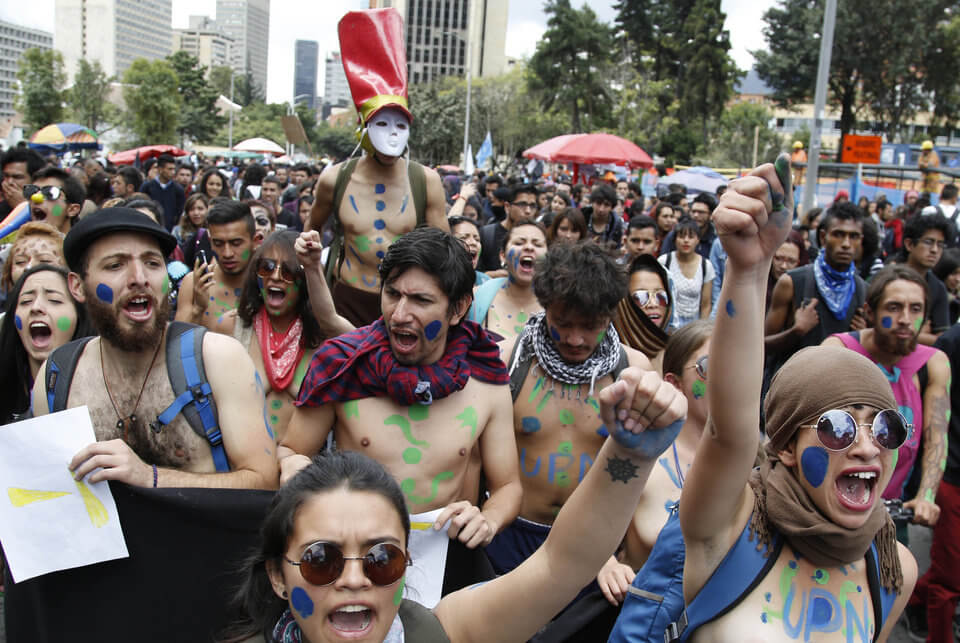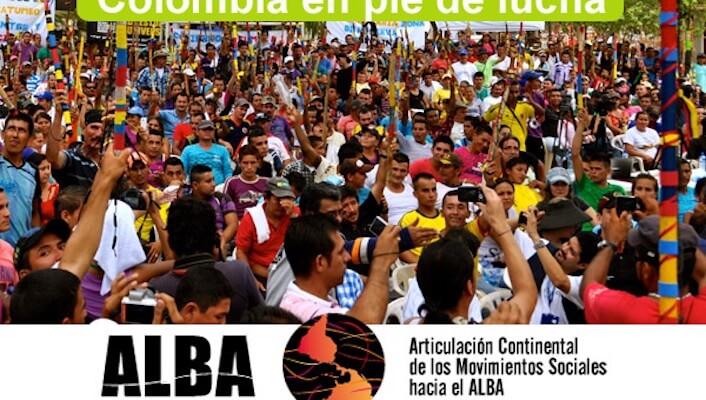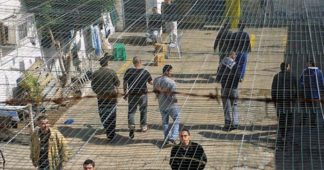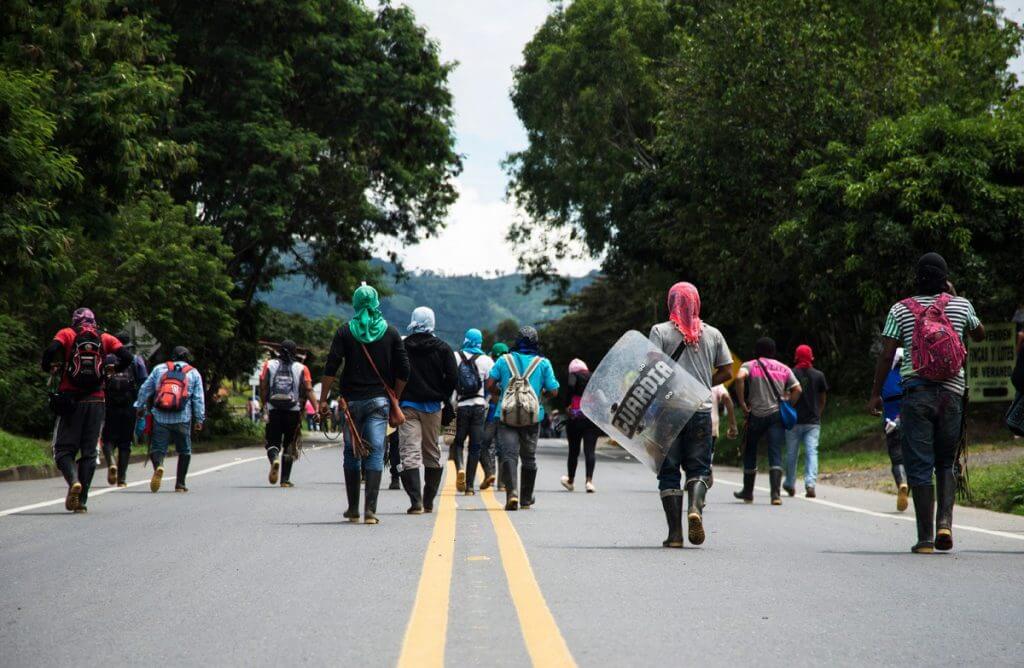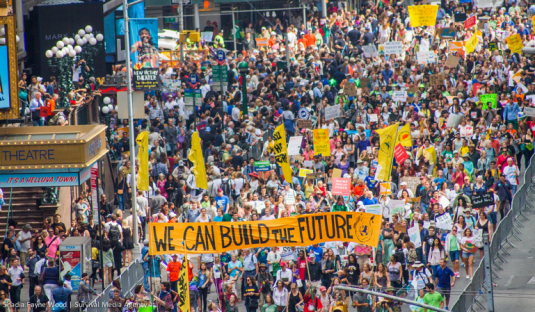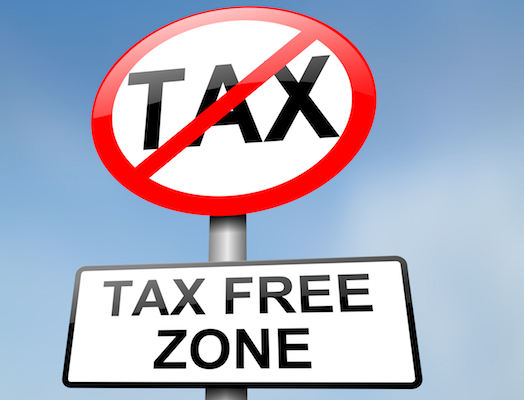By Oscar Castelnovo
“I feel that the Chilean State is committing a disguised genocide, it’s a Terrorist State and this genocide is like the one perpetrated 500 years ago, but is now being disguised, mass media hides it and society in general is not aware of what’s happening”. These are the worlds of Barbara Villalba, teacher and member of the Coordination for the Defense of the Mapuche people.
When did this new process of dispossession start? What are its main characteristics?
The Mapuche people have always vindicated and tried to recover their lands, which were taken by the Chilean State. In the past decades, private and multinational forestry companies have been installed, with the permission of the State and disrespecting the Acts of the Indigenous Law that forbids land grabbing. This process started in 1978, under the military dictatorship of Pinochet: Chile was determined to be a developed country through the establishment of forestry companies, even at the cost of fire and blood. This struggle has taken the life of many of our Mapuche comrades all across the country. In the 90s —during the so-called democracy— German settlers started to invest on a massive scale in Mapuche territory. At the same time, the Mapuche people began their struggle to regain their lost lands and the response of the State was to intensify repression against the communities.
Who are now the “owners” of the land?
There are private capitals, mostly German descendents, transnational companies, forestry companies, mainly Forestal Mininco, which is occupying our territory. They formed privately held companies who get rich and send their income abroad, while communities become poorer and poorer.
You referred to the violation of the Indigenous Law…
Yes, the Indigenous Law is supposed to be above all other legislation: it states that Mapuche territories can’t be acquired, sold nor expropriated. But the private interests are very powerful and the State ignores this law. Instead, it applies the Anti-Terrorist Law and the Law of Internal Affairs.
What do those two laws establish?
These two laws dated back to the dictatorship, they are laws of war. They state, for example, that if someone violates private or State property, he or she is punishable by imprisonment for a term of 5 years. Some of our commune comrades have been sentenced to 40 years of jail and they are now appealing the sentences. Repression operates to dismantle communities. They began by imprisoning the highest authorities of the Mapuche community. The Lonkos and the Machis, for example.
When were communities evicted from their territories?
This process has been taking place since the year 2000. Communities and local sectors of the south of Chile have started the processes to regain their lands. One of the main process is in La Araucanía Region [Region Novena], where we registered the largest number of murders. First of all, the communities, the Mapuche people, are fighting against large transnational companies, which have much power in their relationship with the State. This is a problem for the Chilean State. Secondly, the Mapuche people are well-awared and fully capable of defending their lands. That’s why the State has no alternative, no arguments; the demands are both rightful and lawful. So the State increases the ferocity of repression because their foreign investors fear for their interests in the disputed lands.
The State has no arguments but they have the force
Of course. They have the force. This is what happens in a Terrorist State. On the other side, this has turned into a national problem, rather than a local one, for the government —no matter who is in power: Frei, Lagos, Piñera, Bachelet, or any of them.
Apart from the issue of Land, what can you tell us about the rest of the claims?
The Mapuche movements are demanding their right to be constitutionally recognized. This is still pending. The recognition would determined by law, meaning by the Constitution, (which is now thought as in favour of Chile and not in favour of the Mapuche people) that the Mapuche people can take decisions regarding their own issues, and that they can be acknowledged in their diversity: in terms of their own economic, political and cultural development.
So, one of the main claims is to be heard as a people and not as separated indigenous groups.
Exactly. I also want to make clear that the Chilean State is showing this problem as a “Mapuche Issue”, when actually it represents a conflict that origins in power and that comes from the State itself. At the same time, the State presents the Mapuche as a violent offender who attacks helpless companies, whether they are settlers or forestry companies. In this way, they are hiding the fact that the Mapuche people have every right to claim their lands and in their intention to express this, they are being repressed and imprisoned.
What are the effects of the forestry companies on the population?
Apart from the occupation of Ancestral Mapuche lands, forestry companies pollute the environment and devastate the territory. The entire native forest has been cut down to plant eucalyptus trees and this has affected the water supply because each eucalyptus consumes 200 litres of water daily. So, rivers and the groundwater supply have dried out. There is no water for the Mapuche agriculture. Also, forestry companies continue spraying highly contaminous chemicals on water and crops of our people.
Which are the most affected locations?
Biobio, Araucania and Los Rios are the most affected locations. In Los Rios only now communities are retaking some territories. Among others, Temuco, Concepción and Valdivia are rural areas, isolated and trapped by these forestry companies I have mentioned. We must bear in mind that these communities are geographically close to the cities.
Communities are formed by a small number of families that live in a very small territory, the only lands they have left. They are trying to retake the lands which were taken away by forestry companies. These areas are inhabited by farmers, peasants, Creoles as you call them. There are also Mapuche people, many of them move to the city to find a job precisely because of the territorial reduction that they have suffered, and also Germans, or Swiss, who were given the land by the State and now own the territory.
How many comrades of the communes are imprisoned or were killed in this struggle?
Under this repressive situation there are 32 Mapuches from the communes who are imprisoned in several Chilean jails. Communities are made up mostly of young boys and girls —and older people— and they are being repressed in violent raids, scared at every hour of the day. There are children who have been shot and mass media says nothing about this. There are children that have been kidnapped by unknown entities, presumably related to companies, and have been abandoned far from their communities.
In this context of repression and imprisonments, during the government of Lagos in 2001, the first Mapuche killed was Alex Lemun, a 17 year-old boy who was in one of the processes of land usurpation. He was shot in the head by a Carabinero and died in the Hospital. To this day, the Carabinero is still in office. Another victim was Matías Catrileo, murdered by a Carabinero too, in 2008, during Bachelet’s government. Also Jaime Mendoza Coillio was shot in the back by Patricio Jara Muñoz, another Carabinero, during the retaking of the Fundo Santa Alicia, vindicated by Mapuche communities as Ancestral Territory: his murders happened also during the government of Bachelet. No one is held responsible for this crime.
